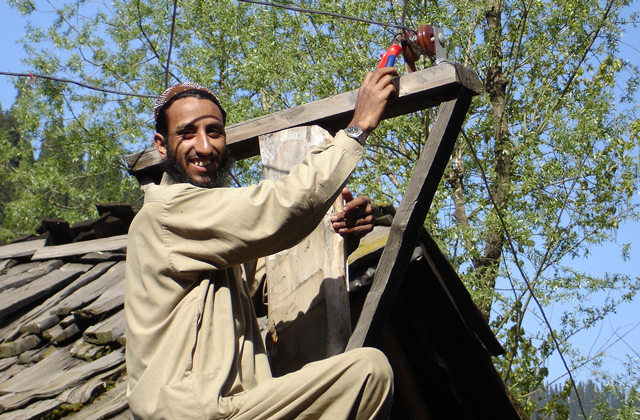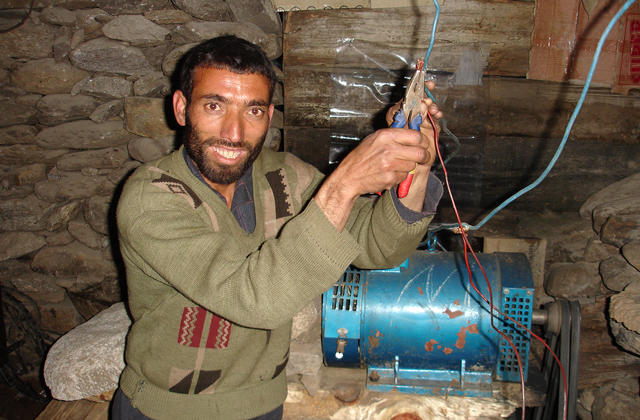RENEWABLE ENERGY
Renewable Energy
In the wake of growing population, the demand for grid electricity in Pakistan is increasing and with no significant investment in the energy sector, the gap between demand and supply of grid electricity is likely to persist in the coming years.
Using solar energy to light homes in Pakistan offers an excellent alternative since sunshine is available for more than 80% of the day time in each calendar year. However, solar technology is still in its infancy stage and does not have wider acceptance in our country due to cost involved and limited knowledge on installation and maintenance of systems.
Mirpur City is the industrial hub of Azad Jammu Kashmir (AJK) and key center of foreign remittances in Pakistan. It has a population of around 0.454 million with approx. 63,226 families (as per the preliminary results of house listing in 2013). A major portion of its population is working overseas and can afford installation of solar systems at their homes to have uninterrupted power supply. Presently there are very few solar technicians and dealers (only two) available in Mirpur City doing installation and maintenance work of solar systems.
In order to assess the demand for solar systems at household level, the applicant carried out a survey in the city. It was inferred that households are interested in buying solar energy based products to have uninterrupted power supply, but they need customized solutions as per their need and also want cheaper product maintenance services. The dealer’s currently offering solar products have pre-designed products without any customized solution. Cheaper maintenance/ after sale service is also not offered by them.
The power shortages have also affected the industrial sector in Mirpur and led to job losses among youth. Youth in the small-scale occupations like welding, electronics and mobile repairing are also suffering from the energy crises as their work is dependent upon the availability of electricity which is merely available for four to six hours in a day in twenty four hours. As a small initiative to reduce unemployment among youth and promote customized solar powered solutions for homes, Sukhi is implementing a project to support 80 youth (10% females) through 6 weeks ‘Solar Power Technician’ training, 5 days ‘Business Enterprise’ training and technical support for establishing small scale enterprises with the financial assistance of USAID.
Neelam Valley is unfortunately the poorest region in Pakistan-administered Kashmir which is ranked as among the most insecure zones of the country by the food insecurity mapping of Pakistan. In the whole valley; there is abundant water in steep rivers and streams flowing all year round. In partnership with UNWFP; we have revitalized about 84 micro-hydel units at different sites in the whole area having capacity from 5 to 50 KW. The community participation is ensured during all stages of the project implementation. For example, community revenue collection help reduce the cost of collection for the utility bills and hence the consumer. We have strong network of community based organizations (CBOs) in this area which assist during running and maintenance of the project at sustainable basis. The transmission lines are extended to the villages to supply renewable energy for household needs as well as for business purposes.
About 3,360 households are benefited from this project. The villagers are able to light their homes, save time and money and run small enterprises relating food like small flour mills, fruit and vegetable processing and preservation units etc with this power. This brings them a little vital money to help improve their livelihoods. An improvement in living standard has reduced the consumption of fuel wood and other fossil fuels and ultimately reduction in CO2. Fuel wood is the major source of energy for the people of this valley but is becoming scarce with the passage of time. This project supplement the energy needs of the area and help protect from environmental degradation.
The diversified use of electricity reduces the demand for fuel wood and thus reduces pressure on both the natural forests and plantations. Electricity is making it possible for families to keep the house atmosphere cleaner. The project contributes significantly in raising the income and improving the livelihoods of the rural communities of this area. The lives of the women and children living in this valley have ultimately improved by the use of electricity which does not produce indoor smoke.
The expected health impact of this project includes; Safety from disease likes TB, Acute Respiratory Distress Syndrome, Cerebral Hypoxia, Stridor and Cancer.


